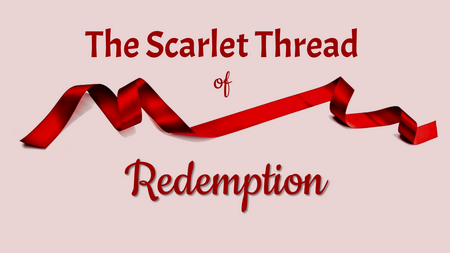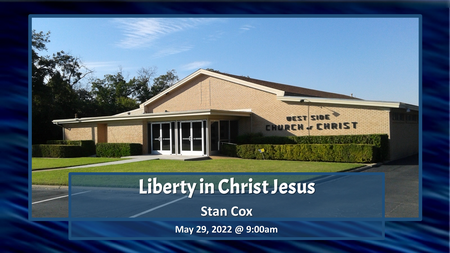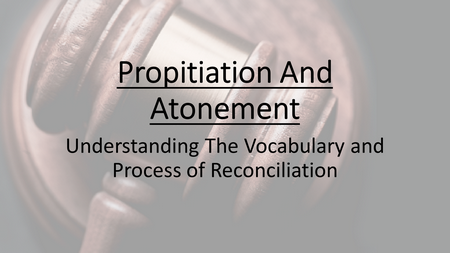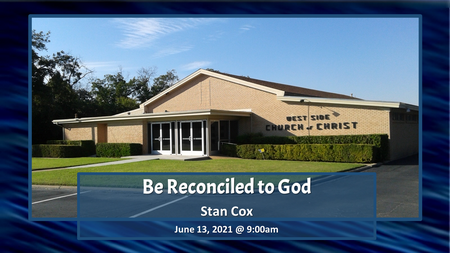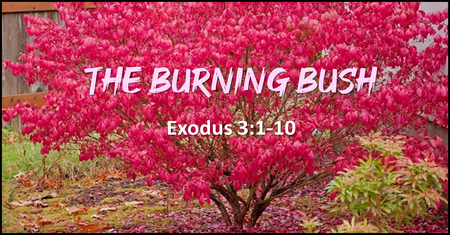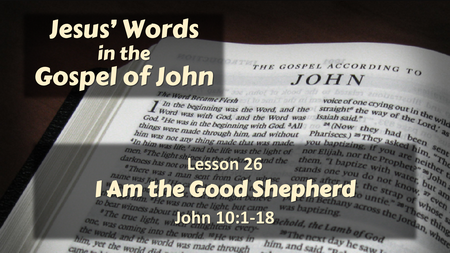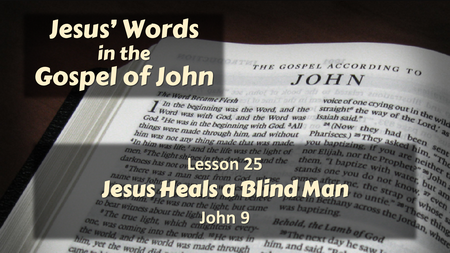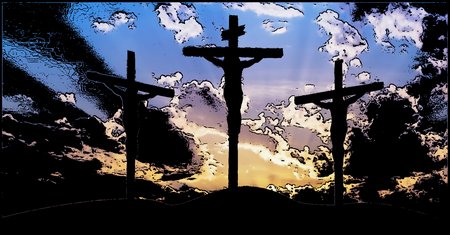Category: Redemption
Subject: Redemption
Sermon: The Scarlet Thread of Redemption
God’s plan for redeeming man runs throughout the entirety of the Bible, tying all of the books from Genesis to Revelation together. An overview of that plan is discussed.
Sermon Powerpoint View and Download:
<<———><><———>>
Sermon: More Than Conquerors
A discussion of Romans 8:31-39, looking at the context, and the significance of Paul’s words, that we are “More than conquerors through Him who loved us…”
Sermon Powerpoint View and Download:
<<———><><———>>
Sermon: Liberty in Christ Jesus
We have obtained liberty in Christ. Why would anyone want to return to a law that did not bring liberty, but rather bondage?
Defilement
Under Mosaic law, there were certain actions and circumstances that rendered a person defiled before God. The Hebrew word translated defiled in the Old Testament texts discussing this state (tâmê) is defined by Strong: to be foul, especially in a ceremonial or moral sense (contaminated).
The reference to ceremonial “foulness” is especially important in light of the Old Testament references to such defilements. While they sometimes refer to moral actions that intrinsically are sinful (such as idolatry, sexual immorality, etc.), often it had reference to things that are not inherently sinful in God’s eyes. Things like childbirth, the touching of a dead body, or a woman’s menstruation.
Sermon: Propitiation and Atonement
Speaker: Tommy Davis
Tommy discusses the Bible terms used to express and explain man’s reconciliation to God
Sermon: Be Reconciled to God
An exegetical study of 2 Corinthians 5:12-21, explaining the importance of Paul’s ministry, and why we should all be striving for reconciliation with our God!
Sermon: The Burning Bush
In Exodus 3, Jehovah spoke to Moses from the midst of a bush that burned, but was not consumed. A number of important lessons can be learned from that occasion.
Conveyed into the Kingdom
“He has delivered us from the power of darkness and conveyed us into the kingdom of the son of His love, in whom we have redemption through His blood, the forgiveness of sins” (Colossians 1:13-14).
WHO? God. He is the one to whom we owe our inclusion in the kingdom. It was God’s intention from before the world began to redeem us through the sacrifice of His Son (cf. Ephesians 1:3-6).
WHAT? Conveyed. The word is defined by Thayer: “to transpose, transfer, remove from one place to another.” It is otherwise rendered “translated” (KJV), and “transferred” (ESV). Being in the kingdom separates the Christian from all others. He is granted all the privileges of citizenship.
WHEN? Already. Note the word conveyed is in the past tense. Those who are Christians are already in the kingdom. That means that the kingdom is already in existence. Those who believe it is yet to be established are wrong.
WHERE? The kingdom of Christ. The bondage of sin puts us into the domain of the wicked one. However, to be in the kingdom of Christ removes us from the reach of the Devil. We belong to the Lord. “Most assuredly, I say to you, he who believes in Me has everlasting life” (John 6:47). So long as we are citizens in good standing, the Devil can’t touch us.
WHY? Why are we in the kingdom? Because we have been redeemed by the blood of Christ! Any who respond in faith to the gospel of the Lord are automatically worthy of citizenship in the Kingdom of God! Christ died for all, and is the Savior of those who believe! Have you believed the gospel Christ?
Click below to…
Sermon: I Am the Good Shepherd
Lesson 26 is series:
In John 10, Jesus describes Himself as the Door to the Sheepfold, and the Good Shepherd. The lesson examines the implications of these statements.
Sermon: Jesus Heals a Blind Man
The lesson covers John 9, when Jesus healed a blind man on the Sabbath day, and then healed his soul as well! He deals with the Pharisees who took issue with His healing on the Sabbath.
It Pleased the Father
“For it pleased the Father that in Him all the fullness should dwell, and by Him to reconcile all things to Himself, by Him, whether things on earth or things in heaven, having made peace through the blood of His cross” (Colossians 1:19-20).
“It pleased the Father.” This is Paul’s assessment of God’s plan for redeeming man. This meaning of this passage is disputed, because “the Father that” is not in the Greek. Rather it is supplied by the translators. A good argument is made by Walton Weaver in his commentary regarding the meaning. He states it as follows: God was pleased to, in all His fullness, dwell in His Son. This principle is set forth clearly in 2:9, “For in Him [Christ] dwells all the fullness of the Godhead bodily.”
Likewise it pleased God to reconcile man to Himself through the sacrifice of Christ on the cross. This is the central message of the Bible. Jesus said, “I am the way, the truth, and the life. No one comes to the Father except through Me” (John 14:6).
God was pleased. Despite the ultimate nature of that sacrifice in offering His only begotten Son, it pleased Him to do so. Why? Why was He so willing to do such a thing? Why did it please Him? Because He loves us! “For God so loved the world that He gave His only begotten Son, that whoever believes in Him should not perish but have everlasting life” (John 3:16).
There are lessons here for us. First, to rejoice in His love. Second, to recognize the greatness of the debt we owe due to His marvelous grace (cf. Romans 1:14-15). Finally, this: “Beloved, if God so loved us, we also ought to love one another” (1 John 4:11).
Click below to…
Work Out Your Own Salvation
“Therefore, my beloved, as you have always obeyed, not as in my presence only, but now much more in my absence, work out your own salvation with fear and trembling; for it is God who works in you both to will and to do for His good pleasure” (Philippians 2:12-13).
Paul’s admonition here is also partly a word of praise for the faithfulness of the Philippian brethren. They had shown themselves to be obedient in the past, he calls upon them to continue. A significant point made in the passage is that continued obedience is necessary to be saved. The idea of working out “your own salvation” is not in any way at odds with the concept of grace. God requires faithfulness unto death to receive the crown of life! (cf. Revelation 2:10). Paul himself told them, “I press toward the goal for the prize of the upward call of God in Christ Jesus” (Philippians 3:14).
Sermon: Paul’s Sermon on Mar’s Hill
An exegetical lesson examination Paul’s description of the “Unknown God” given to the Athenians on Mars Hill in Acts 17.
Sermon: Jesus Asserts He is the Bread of Life
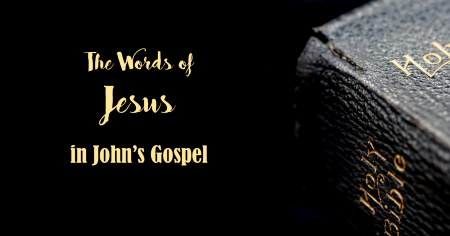
Lesson 14 in series (6:41-51)
Jesus answers the objections to the Jews who murmured at His assertion to have come down from heaven. He is the true bread of life, that brings eternal life to all who are His.
The Blood of the Cross
God’s plan for redeeming man has been referred to as a scarlet thread that runs throughout the Bible. From Genesis to Revelation, the primary thrust of scripture is God’s effort to deal with the sin of man.
It is prophesied in Genesis 3:15 when Satan, in the guise of the serpent, was told by God, “And I will put enmity between you and the woman, and between your seed and her Seed; He shall bruise your head, and you shall bruise His heel.”




